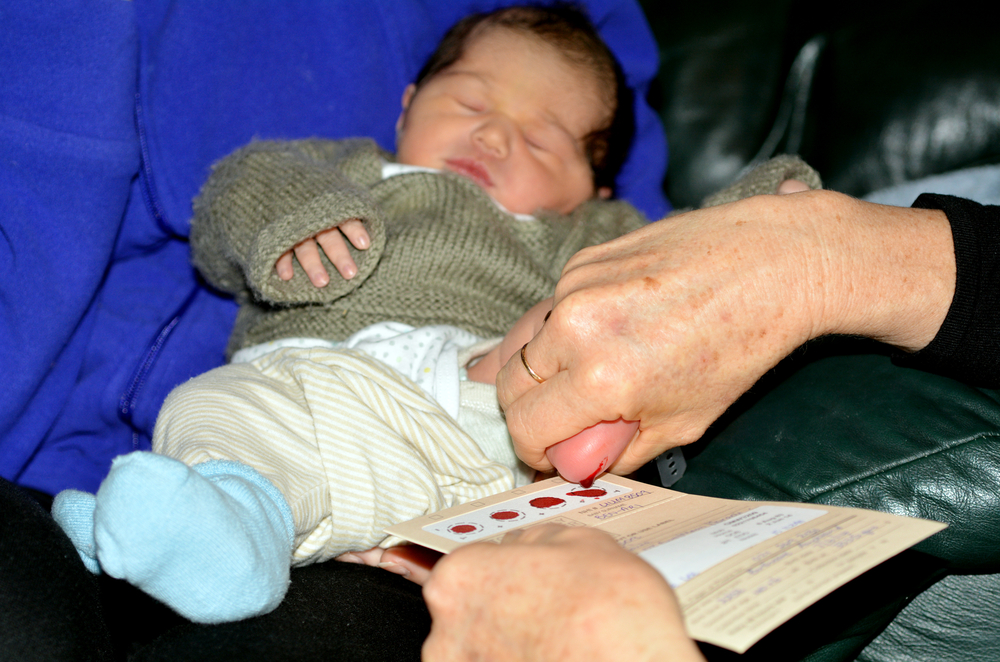CF To Be Part of New Newborn Screening Requirements in PA


Governor Tom Corbett
Every year, millions of babies in the U.S. undergo newborn screening to detect conditions that may gravely affect their health or survival in the long run. This effort is part of healthcare’s emphasis on early detection, accurate diagnoses, and prompt intervention in order to prevent juvenile disability or death. Babies are screened for genetic, metabolic, and endocrine disorders, and are tested for any hearing impairment before they are cleared for discharge. In the case of Cystic Fibrosis, an early diagnosis in infancy or early childhood is key to addressing the disease, which in the long run can impact lifespan and quality of life.
To this end, Pennsylvania Governor Tom Corbett has just signed House Bill 1654, which details the expansion of mandatory newborn screening. This was done during an event at the Capitol, in the presence of lead bill sponsor Rep. Angel Cruz, several members of the General Assembly, Secretary of Health Michael Wolf, and Physician General Dr. Carrie DeLone. Gov. Corbett shares he is deeply honored to sign the bill into law as it is a concrete action that can save more children’s lives in Pennsylvania by allowing enough time to initiate proper treatments before permanent disability settles during crucial stages of growth and development.
The existing state standard is to screen for 6 mandatory diseases, which will now be expanded to include 23 more — including cystic fibrosis, a genetic disorder that affects the lungs and digestive tract. The new bill now requires healthcare providers to screen newborns for lysosomal storage disorders Globoid cell leukodystrophy (Krabbe disease), Fabry, Pompe, Niemann-Pick, Gaucher and Hurler Syndrome.
The new bill also goes by the name “Hannah’s Law,” named after the daughter of Vicki Pizzullo and Justin Ginion of Bristol Township, Bucks County – Hannah Ginion. She was born in January 2013 and exhibited delayed development and anorexia. When Hannah was brought to the Children’s Hospital of Philadelphia in June, she was found to have Krabbe Disease – a rare and fatal degenerative disease that affects the protective myelin sheath, and is estimated to occur in 1 out of every 100,000 births. By the time Hannah was diagnosed, a potentially life-saving cord blood transplant was no longer a viable option. Her mother was invited to speak at the Capitol event, and shared Hannah may not live past 2 years old.
[adrotate group=”1″]
Dr. DeLone read the remarks of Pro Football Hall of Fame Member and former Buffalo Bills quarterback Jim Kelly, whose son died of Krabbe disease, inspiring him to found Hunter’s Hope.
“When my son Hunter was diagnosed with Krabbe Leukodystrophy in 1997, there was no hope for treatment to stop this devastating and fatal disease,” she said. “Thankfully, because of children like Hannah and Hunter, this will no longer be the case for children born in Pennsylvania. Through Hannah’s Law all babies will be screened for Krabbe Disease at birth, giving them the opportunity for life-saving treatment. … I’m proud of Governor Corbett and my home state for understanding the importance of early detection through Krabbe newborn screening. Because of Hannah’s Law, future babies born in Pennsylvania will have the chance at the healthy life they deserve.”
Health officials expect Hannah’s Law to take effect 60 days from signing.
For those in the CF community, new legislation such as Hannah’s Law continues to put rare, deadly childhood illnesses, including Cystic Fibrosis, into focus for the public, which in turn leads to improved care.
In other news, one of the technological advancements applicable in newborn screening is Spot On Science’s HemaSpot, which has drawn industry attention and support from all over the world. It is a device that allows a blood sample to be collected remotely and preserved long enough to be sent to a laboratory.







